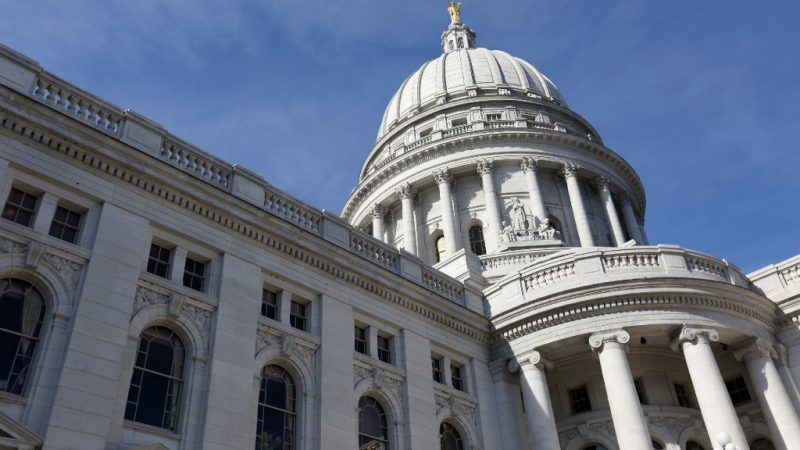WEDC Secretary-designee Missy Hughes said she found WMC’s plan to reopen the economy “very thoughtful and reasonable,” but that she believes public health assessment in a pandemic should be left to the public health experts.
In Thursday’s Assembly Committee on State Affairs informational hearing, Wisconsin Manufacturers & Commerce Executive Vice President Scott Manley laid out the details of his organization’s “Back to Business” plan, which he said would replace Gov. Tony Evers’ current “Badger Bounce Back” economic recovery plan.
According to Manley, “Back to Business” would give each Wisconsin company a COVID-19 risk score based on its county population, positive test rate and hospital capacity, as well as the business’ potential danger for transmission. Companies would be able to reopen under specific conditions according to the score they received, but they would then have to review the score every seven to 10 days through the Department of Health Services.
“One of the primary reasons why safer at home was put in place was to flatten the curve, and we’ve been able to do that,” Manley said. “This has been absolutely devastating (to the economy) and it’s getting worse every single day. There’s a way I believe we can manage and mitigate the risk to protect workers and customers.”
Dems on the committee and Hughes disputed the suggestion that it was time to reopen the state with the pandemic still around. Hughes said Evers’ plan is already in place, and Wisconsin should take forward steps from there instead of completely reorganizing the COVID-19 attack plan.
“I would, therefore, leave assessment of a public health tool to the public health experts,” Hughes said. “We need to thank public health workers and respect them by continuing to heed their advice.”
GOP lawmakers largely agreed public health and safety should be strongly considered, but some argued the response has demolished economic output disproportionately to the actual threat.
Rep. Michael Schraa, R-Oshkosh, said even if the number of coronavirus deaths in the state tripled to 1,000, it would still amount to a fraction of the 5.8 million population. He likened the odds of dying from the virus to that of being killed in a plane crash.
“What I’m trying to put into perspective is a plane crash is horrible and tragic, but we don’t shut the economy down,” Schraa said. “Please keep it in perspective.”
Meanwhile, Rep. Christine Sinicki, D-Milwaukee, said the public response shouldn’t be broken up regionally, as in WMC’s plan, but addressed on a statewide basis.
“Given that I’m from Milwaukee and we still have cases rising, I don’t understand this thinking that the virus is not going to cross city borders,” she said. “You can’t contain it in one city.”
Committee chair Rep. Rob Swearingen insisted the hearing was meant to only gather information and “it’s by no means a bashing of the (Evers) administration.”
Most committee members attended the hearing in person, with Reps. Gary Tauchen, R-Bonduel, Bob Kulp, R-Stratford, and Marisabel Cabrera, D-Milwaukee, meeting virtually over Skype. Along with Hughes and Manley, the hearing featured input from business leaders in manufacturing, retail and restaurant economic sectors.
Watch on WisEye:
https://wiseye.org/2020/04/30/assembly-committee-on-state-affairs-11/
See WMC’s plan:
https://www.wmc.org/wp-content/uploads/04.24.20-WMC-B2B-Plan-Outline-FINAL.pdf
See the Badger Bounce Back Plan:
https://www.dhs.wisconsin.gov/publications/p02653a.pdf




